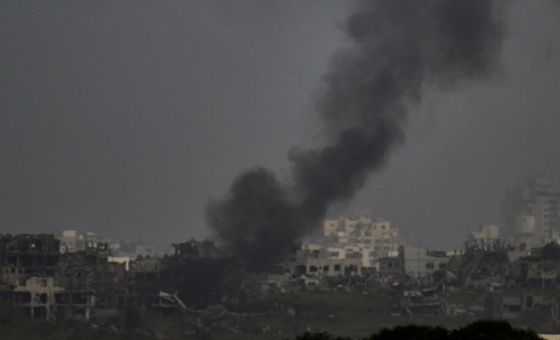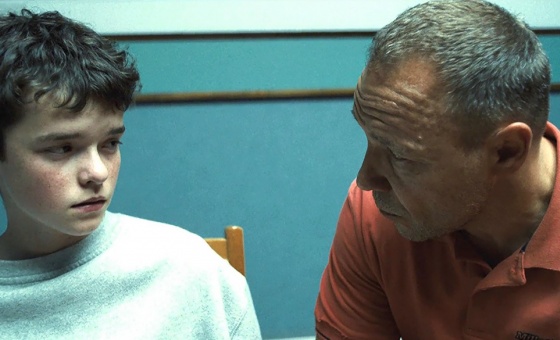This is the last article you can read this month
You can read more article this month
You can read more articles this month
Sorry your limit is up for this month
Reset on:
Please help support the Morning Star by subscribing here
THE world cup kicks off this weekend — a world cup that is easier to get behind than Fifa’s political football — the Rugby League World Cup, or more accurately, cups.
The tournaments, originally scheduled for this time last year but postponed due to issues as a result of the Covid-19 pandemic, will finally get under way when the England and Samoa men’s teams meet at St James’ Park in Newcastle this afternoon.
The men’s event will be the first of three to get under way, with women’s and wheelchair editions beginning in November before all three finals are played in within two days in Manchester on Friday November 18 (wheelchair) and Saturday 19 (women’s and men’s).
Games will take place in venues up and down the country, from Newcastle to London, with a natural concentration of venues in England’s rugby league heartlands in the north of England, along the M62 corridor.
That regional aspect of rugby league can see it struggle to gain a footing on a global scale, and this can be most evident during international tournaments.
The sport often takes a back seat to others including its union cousin, even when the competition is global rather than regional.
Even in countries where league is played to a high level, such as Australia, New Zealand, England and France, it is not considered the national sport in any of these countries.
Though league is a prevalent code of football in Australia, it has heartlands in Queensland and New South Wales, just as it has heartlands in the north of England and the south of France.
In Australia, sports historians even use an imaginary line called the Barassi Line, which splits the far eastern side of the country from the west to indicate where rugby league football is more popular than Australian rules football.
Other sports such as cricket and rugby union also have a high profile in Australia, and cricket is considered its national sport — likely because there is no need for any geographical dividing line where cricket is concerned.
But there is one country at this world cup, participating in both the women’s and men’s tournaments, where rugby league is considered the national game.
Papua New Guinea is part of the south-western Pacific island of New Guinea, which it shares with Indonesia. It is just to the north of Australia, separated by the 94-mile-wide Torres Strait.
Ahead of the 1995 World Cup, the late, great rugby league writer Dave Hadfield, wrote in the Independent that “nowhere in the world of rugby league will victory — any victory — in the World Cup be hailed with as much joy as in Papua New Guinea.
“The country occupies a special place in the game's geography as the only country where the code is indisputably the national sport.”
And such sentiment remains true to this day. The team are nicknamed The Kumuls after the bird of paradise that inhabits the island and is present on the country’s flag.
PNG will bring their tough and entertaining brand of rugby league to the tournament, for which they are based in one of England’s own traditional rugby league areas, Warrington.
They were welcomed there on Wednesday night at an event to promote the World Cup in the town where they will play Cook Islands on October 24.
One of the early highlights of this tournament could be their first game, against Tonga down the road in St Helens on Tuesday.
They will also face Wales in Doncaster in this opening round of games, and it is a group that could be one of the more closely contested of the four as teams vie to qualify for the knockout stage.
Papua New Guinea’s performance at this tournament will be watched fervently back home, but some in Australia may also be keeping an eye on their progress.
There has long been a push for PNG to have a team in the world’s premier club rugby league competition, the National Rugby League (NRL).
The NRL is currently made up of 16 teams from Australia and one from New Zealand.
Papua New Guinea is much closer to Australia than New Zealand is, which should be one of the things in its favour as it looks to create an 18th team in its capital city, Port Moresby.
The Kumuls’ squad for this World Cup already includes bonafide NRL stars such as Xavier Coates Melbourne Storm and Alex Johnston of South Sydney Rabbitohs.
Earlier this year in a meeting with Australian prime minister Anthony Albanese, the prime minister of Papua New Guinea, James Marape, said: “If there is something good that Australia has left as far as a lasting imprint in Papua New Guinea, rugby league is one of them.”
Albanese concurred that an NRL team for PNG, or the Pacific region generally, would be something that should be seriously considered. After all, if you carried on drawing the Barassi Line beyond Australia, Papua New Guinea would be firmly in rugby league territory!
Papua New Guinea are also in an interesting group in the women’s tournament, which contains the only two teams from the Americas across the three tournaments — Canada and Brazil — as well as England.
There will likely be some one-sided games across the next two months, but this can happen in any sport and isn’t always a bad thing, as fans get to watch a dominant team display their range of moves and skills.
But as the tournament reaches the final stages, there are likely to be some heated battles.
There’s the potential for a men’s semi-final between Australia and New Zealand in Leeds, with the latter the only team able to break Australia’s dominance in recent decades when they won the final of the 2008 edition in Brisbane.
The other semi could pit Papua New Guinea against the hosts, England, at the home of the Arsenal Football Club in London, but there is a lot of rugby to be played, and a lot of rugby to be watched and enjoyed before we get to that stage.
And one of the most enjoyable World Cup stories well could be that of Papua New Guinea — the country that has welcomed rugby league like no other.









